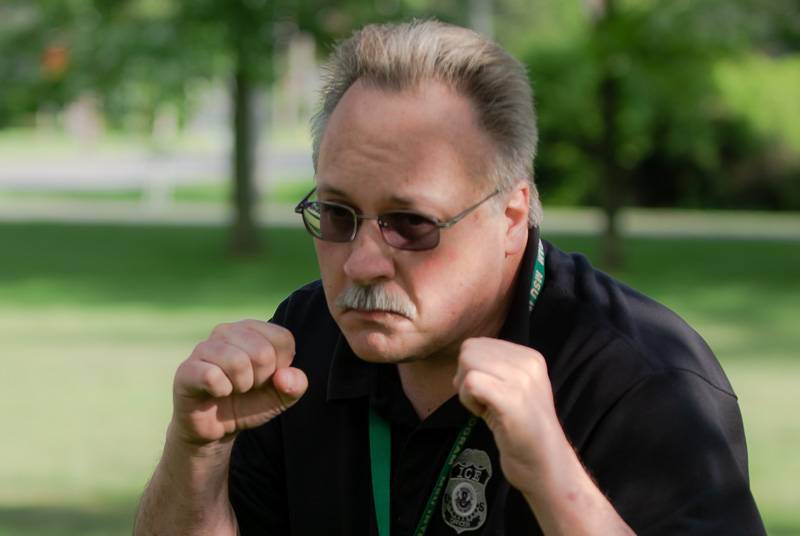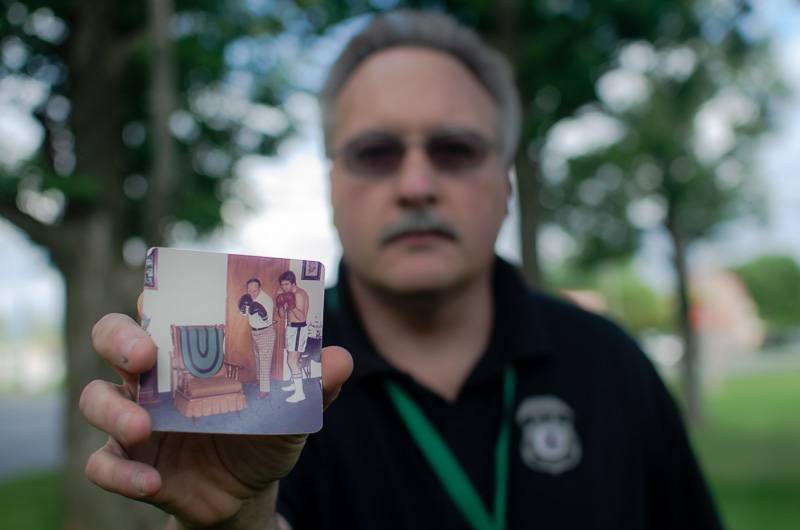
Timothy Freeman Edgerton, whose distinguished life as a citizen of Genesee County included winning a Golden Gloves championship in 1977 in Texas, died at age 62 at home in Oakfield on May 7.
He is the last known boxer with roots in Batavia to have won a championship.
His obituary was released today.
Edgerton was born Aug. 6, 1960 in Batavia. He graduated from Byron-Bergen and attended GCC for a year. He then transferred to Sam Houston State University in Texas, where he majored in Criminal Justice.
As a youth, Edgerton was captivated by boxing stories of his uncle Norman, who once battled for a Golden Gloves title and lost. In 1976, he took boxing lessons in Rochester. He was unable to get on a Golden Gloves card in Buffalo -- for some reason, the only names drawn were all Buffalo residents, so he hung up his gloves for a little bit.
He moved to Houston, and while there, he decided to try again to compete for a Golden Glove title. While signing up, he was recruited by a boxing team, Cut and Shoot, Texas.
They were a few boxers short for the team, Edgerton told The Batavian in 2013 in an exclusive interview. They could provide people to work his corner. That way, Ederton got help, and if he scores any points, the Cut and Shoot team gets the points.
That sounded like a fair deal, Edgerton said.
"Of course, they had no idea what my skill level was," Ederton said. "They just went into it blind, kind of like I went with them blind."
From The Batavian's 2013 story:
Then this man from Cut and Shoot, Texas, had another proposal for the 174-pound fighter.
"The guy says, 'What would you think about fighting as a heavyweight?' and I said, 'Are you kidding me?' "
Edgerton would be giving up at least 25 pounds to every fighter he faced.
"You'll be giving up a lot of weight, but you're quick, you're fast," the man said. "Jab and move, stay away from them, try to score some points. Your chances are better as a heavyweight. I know some of the kids in the lightweight division. They're really good. I don't know you, but that's the best I can offer."
Edgerton and Lettie talked it over. The man, whom Edgerton still didn't know from a fence post, seemed to know what he was talking about.
After winning the preliminary bouts, Edgerton was facing a man 45 pounds heavier in the finals.
"He had had to go 220, maybe 225 pounds," Edgerton said. "He was bigger. He was taller. And I won. I don't know how. Maybe out of fear. But I was able to take it to him pretty good.
"It did work out where he was bigger and stronger, but he was slower," Edgerton added. "I could outmaneuver his punches, you know, duck. A couple of times, he swung, and I could just literally feel the air rush overhead. If he ever hit me, I would have been gone. They would have been carrying me out."
The fight went all three rounds, and for a moment, Edgerton thought he could score a knockout.
"In the third round, I almost had enough to put him down," Edgerton said. "He was stumbling back into the ropes, but I didn't have enough.
"In my corner, they yelled out, 'stick and move, stick and move, you got the fight won, just stick and move,' so that's what I did," Edgerton added. "I got on the bicycle, and started sticking, moving, moving, sticking. He couldn't catch me. He was tired. I was in better shape, thank God, and I ended up winning."
With the victory, Edgerton won his Golden Gloves title, and as a heavyweight. Those points also put the team from Cut and Shoot, Texas, over the top for a team championship.
That was Edgerton's last fight. He finished with a career record of 19-6.
Edgerton married Lettie, whom he met in Texas.
He wanted to return home, but couldn't land a crime-fighting job in Genesee County. He went to work for the U.S. Immigration and Naturalization Service, living in Detroit for a while.
Eventually, the job brought him back to Batavia
In 1993, he developed Operation Child Intercept, which has been adopted nationwide, to combat the illicit transportation of missing and abducted children across the international borders into the U.S.
Edgerton served on the Oakfield-Alabama Central School District board for 15 years and was an advocate for student rights, improved school nutrition, and diversity and inclusion. He also served as President and a key member of the Elementary Community School Organization (ECSO), where he helped bring skating parties, winter carnivals, public speakers, and countless other special events to the students and larger community each year.

